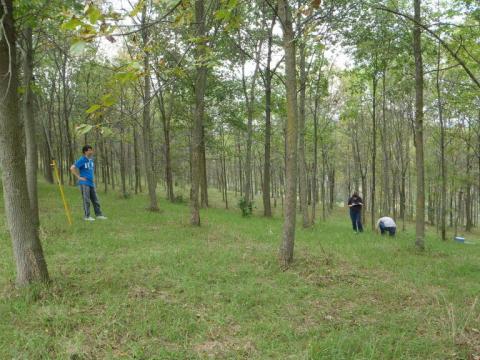
By Jeff Mulhollem, Pennsylvania State University
"Lingering ash." That's what the U.S. Forest Service calls the relatively few green and white ash trees that survive the emerald ash borer onslaught. Those trees do not survive by accident, and that may save the species, according to Penn State researchers, who conducted a six-year study of ash decline and mortality.
The research shows some ash trees have varying degrees of resistance to the strangely beautiful, invasive beetle from Asia. The study is unique because it took place at a plantation of ash trees planted on Penn State's University Park campus in the mid-1970s.
"We found that genetic variation exists in trees from around the country, and through time—especially as the emerald ash borer population collapses because host trees are rapidly disappearing—the resistance that we observed will likely ensure the survival of the species," said Kim Steiner, professor of forest biology, College of Agricultural Sciences.shredded
Genetics moderated the rapidity with which emerald ash borers injured and killed trees, researchers learned. This suggests that some ash genotypes, especially on favorable sites, will survive.

